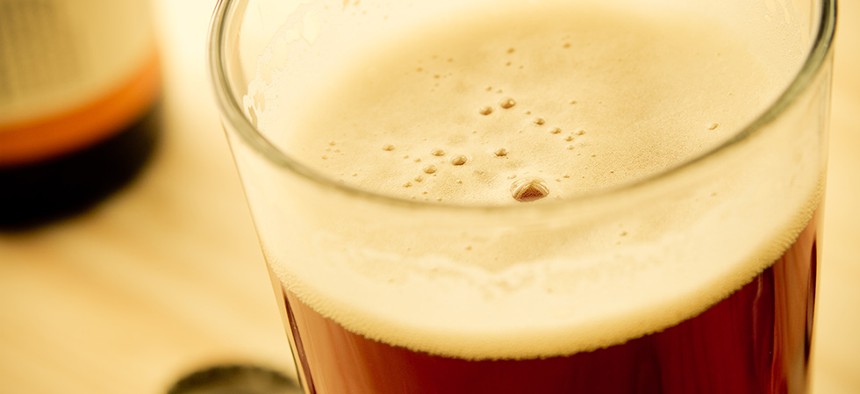Oregon Homebrewers Get Set to Experiment With 'Sewerage Brewerage'

RONORMANJR/Shutterstock.com

Connecting state and local government leaders
Portland's water department will get to show off just how good its super-pure recycled wastewater is.
Clean Water Services of Portland, Oregon, wants its customers to understand one thing: Its water is clean. Really clean.
Like, homebrewed-beer clean.
Homebrewers are very particular about the water they use when they practice their art. That's why homebrewers in Portland, Hillsboro, Beaverton, and other places along Oregon's Tualatin River watershed are eager to get their hands on the high-purity water that Clean Water Services is producing.
Water so clean it exceeds drinking water standards. Water so pure even healthy minerals are stripped away. Water recycled from the sewer.
This summer, those homebrewers may get their chance. The Portland-area utility is close to receiving approval to provide homebrewers with recycled, purified wastewater—an ingredient so agile, it'll have the brewmasters in Burton-upon-Trent raising a glass.
"You look at Portland. We’ve got about 70 breweries in the metropolitan area," says Mark Jockers, spokesperson for Clean Water Services. "The thing that they're intrigued with, from an experimentation standpoint, is that this high-purity water is a blank slate."
Sewerage brewerage: No one seems to mind the idea. People who testified last week at a public hearing on the proposal—among them Tualatin Riverkeepers director Mike Skuja and Oregon Association of Clean Water Agencies director Janet Gillaspie—all spoke in favor of the plan, according to Marcia Danab, a spokesperson for the Oregon Department of Environmental Quality.
Danab says that the Oregon Department of Environmental Quality will very likely pass along a recommendation to the state's Environmental Quality Commission that homebrewers should be allowed to make beer out of recycled sewer water. If the Environmental Quality Commission concurs, it's a done deal.
Mind you, Portlanders won't be able to buy this stuff in stores or at bars, even if and when Clean Water Services gets the go-ahead. State law prohibits the use of recycled water for potable applications without specific approval. Clean Water Services applied only for a limited use, much as it did when it partnered with the Oregon Brew Crew for a purified-water beer challenge last year.
Nevermind the fact that all beer is brewed from recycled water, since all the water on the planet is recycled.
Jockers expects some 20 homebrewers to compete in this summer's contest, if they're able to get over the bureaucratic hurdles. Clean Water Services will take kegs of the best 4 to 6 beers with them to Chicago for the Water Environment Federation Technical Exhibition and Conference in September. "We're not going to have enough beer for all of them," Jockers laments.
Might the homebrewer in your life be fermenting up a Sewerage Saison some time soon? Clean Water Services isn't looking to change how beer is made, but rather how water is perceived. The notion that convenience water (bottled orboxed) is purer or cleaner than tap water in many municipalities is misguided. Wastewater treatment facilities can produce recycled water that's every bit as pure or even purer—and cheaper, and free of the landfill-stuffing waste of plastic bottles.
"We're trying to advance the nature of the conversation about water. There's a public perception that water that comes out of the tap doesn’t have any history," Jockers says. "You can't look at its history, you’ve got to look at its quality."
(Image via RONORMANJR/Shutterstock.com)




